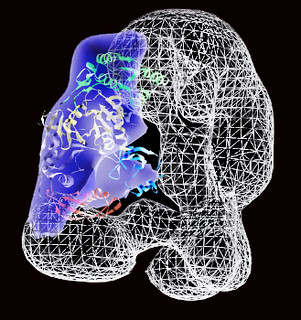Eventually, everybody ages. While some good things come with age, aspects of aging, such as muscle weakness, can now potentially be stopped. For a long time, scientists have wondered why muscles start to weaken as humans age, but now, due to a recent ScienceNews article, we may be able to answer and solve muscle weakness!
In the article, scientists discovered that inhibition of an an enzyme called 15-hydroxyprostaglandin dehydrogenase, or 15-PGDH for short, can help with strength and more muscle mass in older humans. 15-PGDH breaks down a signaling compound called prostaglandin E2, which activates the production of muscle cells that regenerate damaged muscles. Though it may seem confusing why 15-PGDH breaks down prostaglandin, the enzyme is a tumor suppressor. The enzyme inhibits proliferation so that cancer and other cells can be differentiated. In younger muscle tissue, 15-PGDH was found at reduced and relatively little abundance, but in older muscle fibers, it was found in great abundance, which caused relatively minor muscle repair. In the study, 15-PGDH was inhibited by gene knockout. However, studies show that the enzyme has potential effectors that cause an induced closure of the enzyme’s active site, which inhibits 15-PGDH. This would be an allosteric interaction in which the effector works by binding to the enzyme and changing the shape of the active site so that it can no longer work.
Eventually, everybody ages, so this discovery is important to me. Being able to have optimal strength and energy while being old may be possible, according to the findings made by scientists. Hopefully, by the time I age, these findings can help allow older humans to continue to have peak performance. If you guys have any other studies relating to human muscle deterioration, I would love it if you shared them in the comments!




ariatom
Hi Zaygote! It would be so nice to be active and lively in old age without muscle deterioration, unfortunately, aging is a normal process and so is muscle deterioration. There are many reasons why muscle deterioration occurs as we age, ranging from diseases to inhibition of the enzyme 15-hydroxyprostaglandin dehydrogenase, to hormonal changes. One reason that gained my attention was biochemical and metabolic changes. According to the first article I posted, Mitochondrial DNA deletion mutations occur as we age and cause reduced mitochondrial protein synthesis. These metabolic changes correspond to the overall physical fitness capacity of the elderly and the ability to use oxygen during workouts. According to the second link I posted, there are so many aspects of the human body that change as we age causing muscle deterioration and age-related weakness. I hope in the future we can reduce or eliminate some of the factors that cause muscle deterioration, but we have a long way to go.
https://www.ncbi.nlm.nih.gov/pmc/articles/PMC2804956/
https://www.mountsinai.org/health-library/symptoms/muscle-atrophy